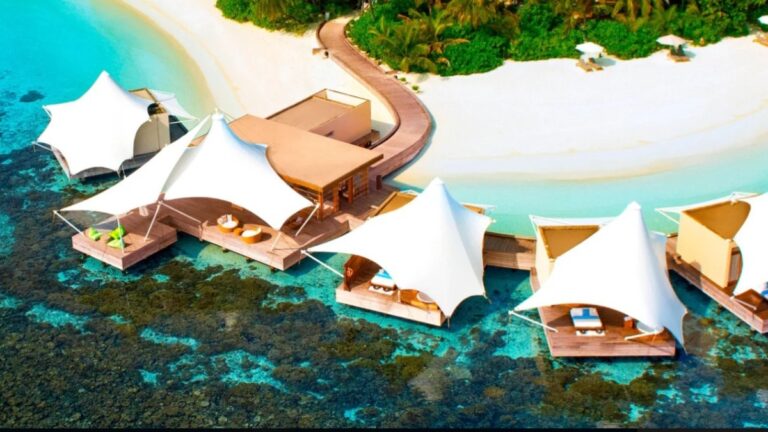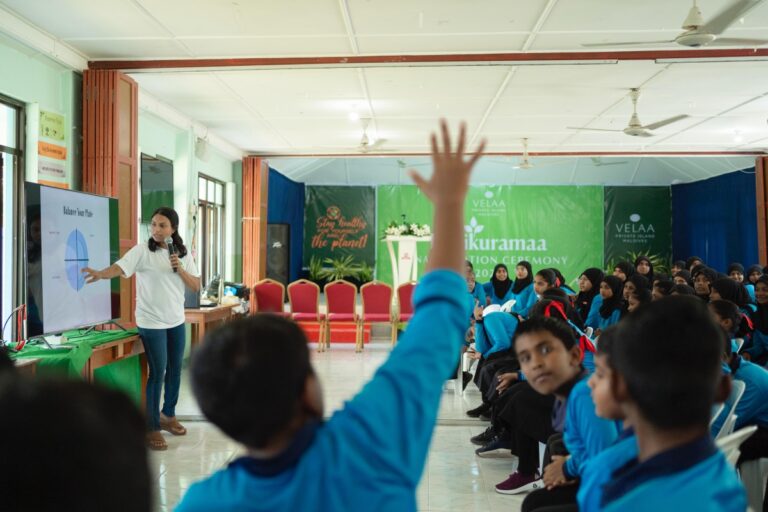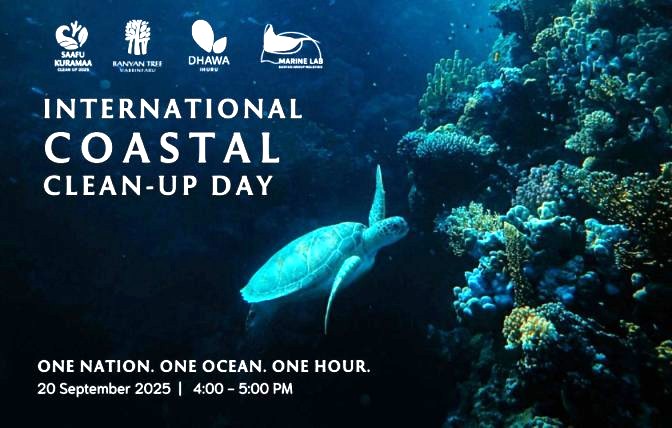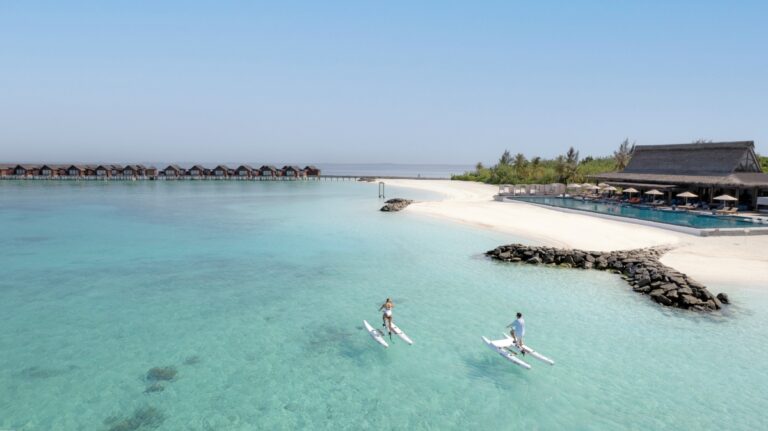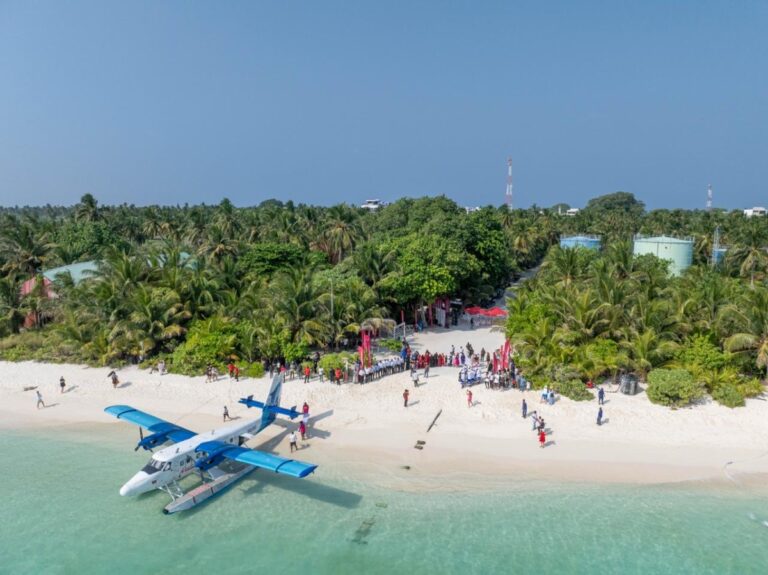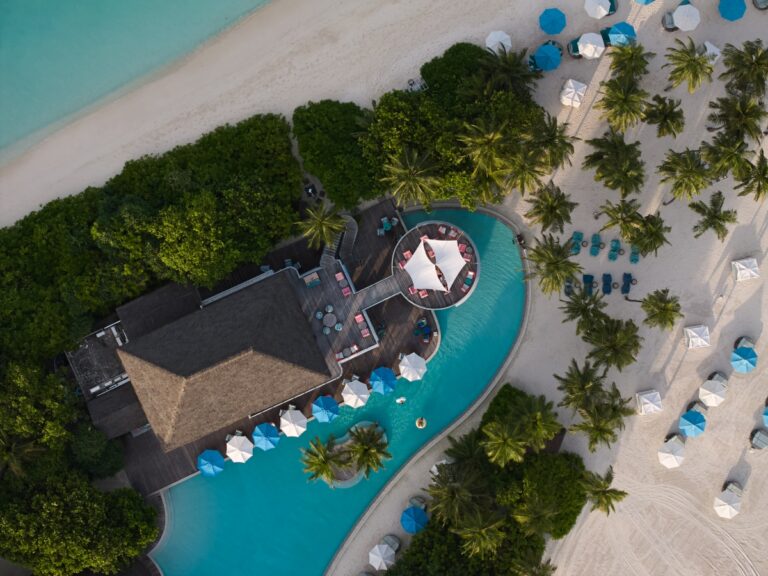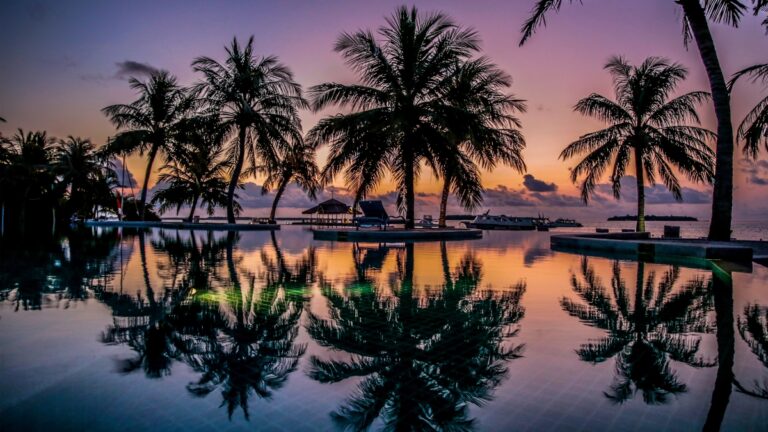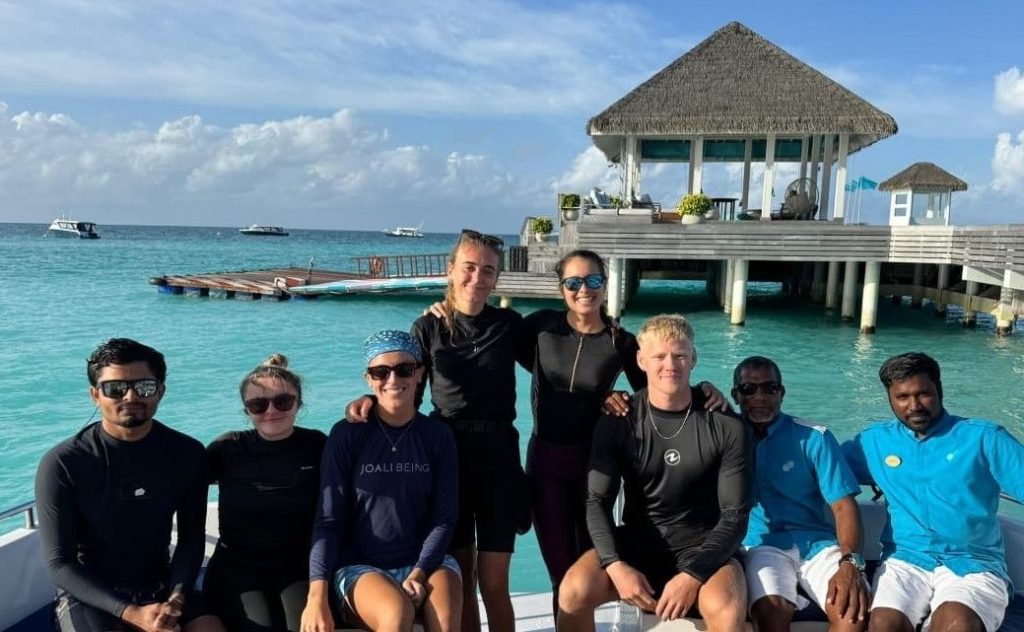
Team of marine biologists from neighbouring resorts pitch in
It was a team effort at Finolhu, A Seaside Collection Resort in Baa Atoll, involving five marine biologists dressed in rash vests and board shorts, with scuba gear at the ready. Boat crew from the resort were also on hand to help the group carefully ferry trays of coral from the resort’s nursery to their new home. September had arrived and despite a couple of clouds, the bright sunshine piercing through Finolhu’s clear lagoon boosted the already excellent underwater visibility.
The calm weather certainly came in handy during the delicate operation. Transplanting coral is a careful process – you have to make sure you don’t stir up too much sand, which could smother the new coral colonies before they’ve even had a chance to expand.
It all began with hardy coral polyps being encouraged to grow into colonies in Finolhu’s nursery. Finolhu’s on-site marine biologist, Ivanna Tobar, spearheaded the project. After successfully growing 2,000 coral colonies, she then invited marine biologists from neighbouring resorts in Baa Atoll to pitch in for a four-day transplantation project.
Philippa Darbyshire-Jenkins from Joali Being, Rosalie Bailie from Coco Palm Dhuni Kolhu, Harry Longin from The Westin Maldives Miriandhoo Resort, and Louna Marchand from Dusit Thani Maldives (pictured above) started by helping Ivanna evaluate reef health and prime the transplant site.
This included the removal of pincushion sea stars. Although they are native to the Maldives, they prey on fragile corals, so their removal can help enhance coral restoration. The team then prepared the equipment together before embarking on their coral transplantation dives.
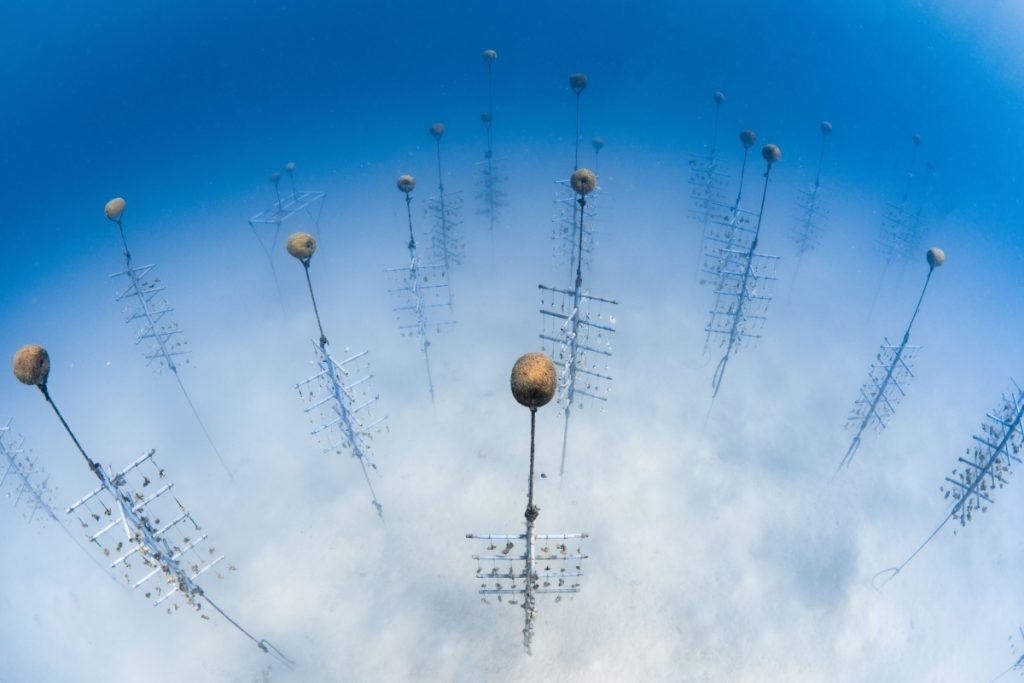
Through this collaborative approach, the team from five Baa Atoll resorts has not only accelerated Finolhu’s coral restoration but also strengthened the atoll’s collective expertise in reef management.
As you can see from the photo above, the 2,000 coral colonies look like tiny pieces of coral, which were then attached to metal frames. The team donned scuba gear to position the coral colonies because it enabled them to stay down at the required depth for longer than if they freedived. It’s hoped the colonies will expand and cover the frames, imitating a natural coral reef.
Ivanna selected a location in the lagoon with deep enough water to mean the coral won’t overheat too easily, giving it a better chance of survival than reefs in shallower water. The site is also easily accessible for snorkellers and freedivers, as well as any scuba divers who might be curious about the project.
“This project was about more than restoring coral; it was an opportunity to foster collaboration between resorts, share knowledge, and take a leadership role in marine conservation,” said Ivanna. “Healthy reefs are essential for biodiversity, the well-being of local communities, and sustainable tourism. By working together, we made a measurable difference”.
Coral conservation is vital in the Maldives because reefs provide natural protection against erosion and storms, support fisheries that communities depend on, and are a major reason why divers and snorkellers visit the Maldives. Rising ocean temperatures, ocean acidification and pollution are placing unprecedented stress on these delicate ecosystems.
Ivanna will continue to monitor reef health, manage the coral nursery, and help develop sustainable marine practices. Guests at Finolhu, a Seaside Collection Resort, can also participate in conservation experiences. They include a Marine Mysteries & Conservation Package, which offers activities like manta-spotting and guided snorkelling with the marine biologist.
For more information on Finolhu, click here.
